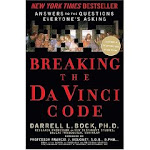Read Isaiah 1:18-20
See now what the Lord says…”let us reason together…”
Who is it that will be reasoned with? Only the one who is washed…only the one who has put evil away. Only they that do good and seek justice…in other words, only the elect. See how God pleads, see how He warns. Anyone and everyone is able to listen to the words of the prophet, and yet they don’t. Why not? Simply because they don’t want to.
Although John Gill maintains that these words are addressed to the elect specifically, I do not agree. The words, as all such invitations, are a general call. I think the placement of this invitation between what are two very clear warnings serve as evidence that the invitation and its accompanying promise (sins being made white as snow) are intended to the same group. Where we see election in all of this, of course, is that not one of the hearers will respond favorably to the invitation without the supernatural work of the Spirit of God. This, then, is the great mystery which God in His sovereignty has chosen not to make clear to us. That it is true, however, is clearly shown throughout the Word.
But what of this reasoning together? In our modern way of thinking we might be tempted to think it refers to some manner of debate between two equal sides. Nothing could be further from the truth. The clear implication here is that God is calling people to look at the reasonableness of His offer. Why suffer judgment when He has so graciously offered forgiveness and reconciliation? Our mistake is that we too often hold God to some human standard and we think that our is superior, foolishly forgetting that as God Almighty He is subject to no human standard but IS the standard setter. Knowing all things past, present and future, everything that He does is good and for the good of those whom He has chosen. See Ezekiel 18:25 where God clearly differentiates the ways of man and His. Guess what? His are the ones that matter!
So we see here that this is an open offer to all people, and at the same time it is NOT an invitation to lay out one’s side of the story, if you will. It is an invitation to examine the amazing offer of God.
Note also the contrast in the remainder of verse 18:
“Though your sins are like scarlet, they shall be as white as snow; though they are red like crimson, they shall be as wool”
Sin is scarlet, red like crimson. From the very beginning, sin has been associated with the color of blood for the very reason that sin is such an affront to our holy God that it merits death and nothing can excuse sin except the shedding of blood! Something that strikes me particularly is the picture of Adam and Eve when they sinned in the garden and judgment was brought upon them (see Genesis 3:14-24). Recall the innocence in which they lived and the wonderful co-existence between humanity and the rest of creation. Then, after judgment is pronounced, we read this small verse (21), “Also for Adam and his wife the LORD God made tunics of skin, and clothed them.” This verse is too often passed over too quickly, so consider what has actually happened: death has entered into God’s perfect creation! In order to clothe those who have just sinned them, in order to cover their nakedness of which they are now so very aware, God killed a living creature. Henry Morris has rightly referred to this as the first atonement for sin. And what a horror it must have been for the first man and woman to witness this! For the first time they saw the blood of a living creature run on the ground…crimson blood, shed for them!
So consider what God is promising here! The foul sin, metaphorically described as scarlet and crimson, they shall be atoned for. What was dirty and an abomination shall be pure and white, the color of innocence. Now obviously this does not mean the sins themselves are declared good as some might erroneously assume. No, this lyrical language is talking about forgiveness of that sin. If only perfection and complete holiness can enter into the presence of God, then we are declared to be such upon the merit of the atonement. And yes, this is exactly what Isaiah refers to!
What is more, having been declared righteous, having been forgiven, those so declared may now “eat the good of the land.”
John Calvin has the following to say about verse 19:
A change of the construction of the words (hypallage) has been admitted into this sentence; for the meaning fully brought out would stand thus: “if your mind be ready, and your will be disposed, to obey;” or, which amounts to the same thing, “if you render obedience to me, and lend an ear to my word.” since, therefore, God places the happiness of men in obedience, it follows that our life is properly conducted, when we hear God speaking, and obey him in all things. How great, therefore, is the wickedness of men, when they refuse to listen to God who is continually speaking to them, and reject the happiness which he has provided and offered!
The teaching, as we have been seeing in this passage, is that he who turns to God does so willingly and without any reservations. Our wills are disposed to obey as Calvin puts it. And since we are taught in Scripture that the natural man despises the things of God, then it follows that until and unless the Spirit awakens from our spiritual death, we will refuse to render God obedience!
And it is to these who refuse Him that verse 20 speaks!
“But if you refuse and rebel, you shall be devoured by the sword”
God has offered peace towards Judah. He has given them every reason to turn to Him and repent of their evil ways, to begin to do good and wash themselves clean. The offer is there; so to refuse His offer of peace…to rebel against the rightful ruler of the land…this is to spit in the face of our Peacemaker! And God is just. His justice demands that rebellion be punished and so Isaiah communicates this message to Judah, “for the mouth of the LORD has spoken.”
I know we’ve touched on this subject previously, but it is so important that we understand and teach others that there is NO injustice in God. Those who perish in their sin, those who reject Him, they suffer the consequences of their own willful disobedience. The blame cannot be laid upon God here and it is a false understanding of Calvinism to suggest that it teaches this doctrine. Far from it. Each and every man and woman who has lived and ever will live is responsible for their own actions and for their own submission to or rejection of the command of God to repent and His offer of forgiveness.





